Your Aspirations for 2021:
Before 2020 ended, we did a rain check with you guys on your aspirations outside of work. What struck us was the number of people who mentioned that they wanted to better care of their mental health.
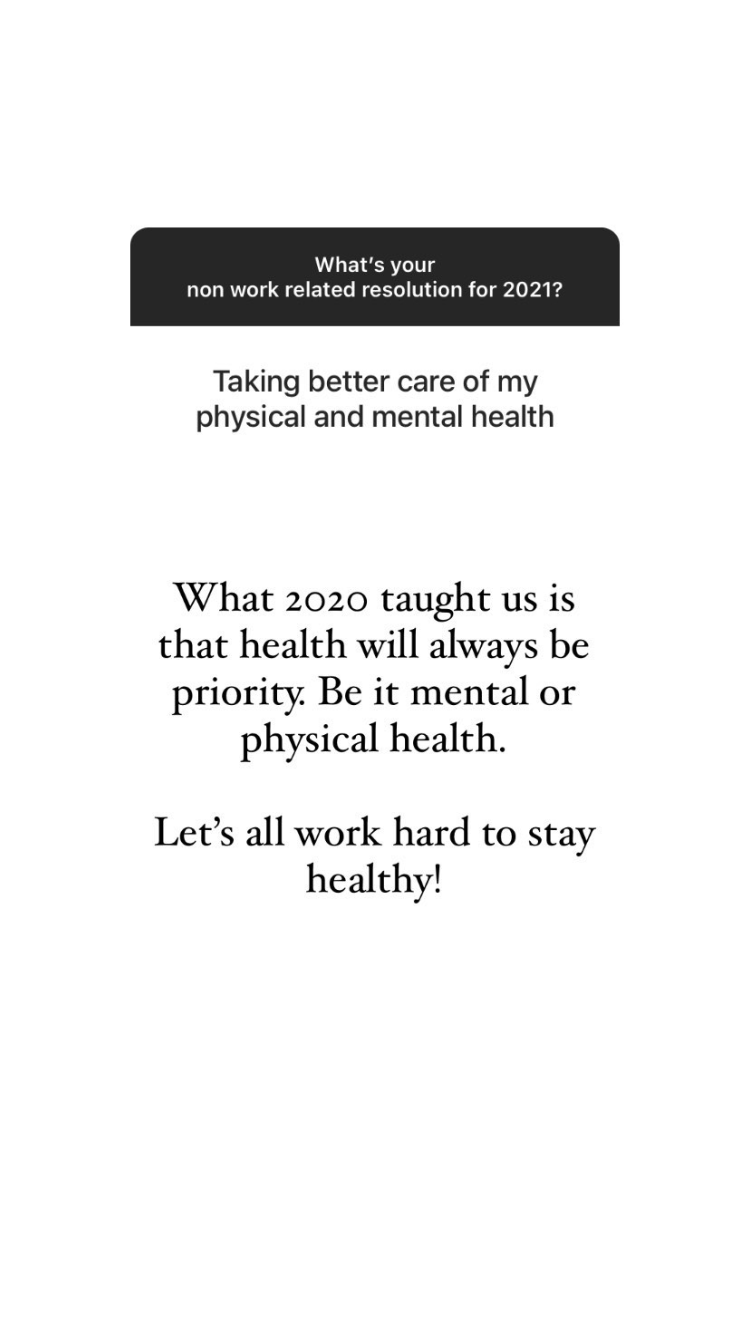
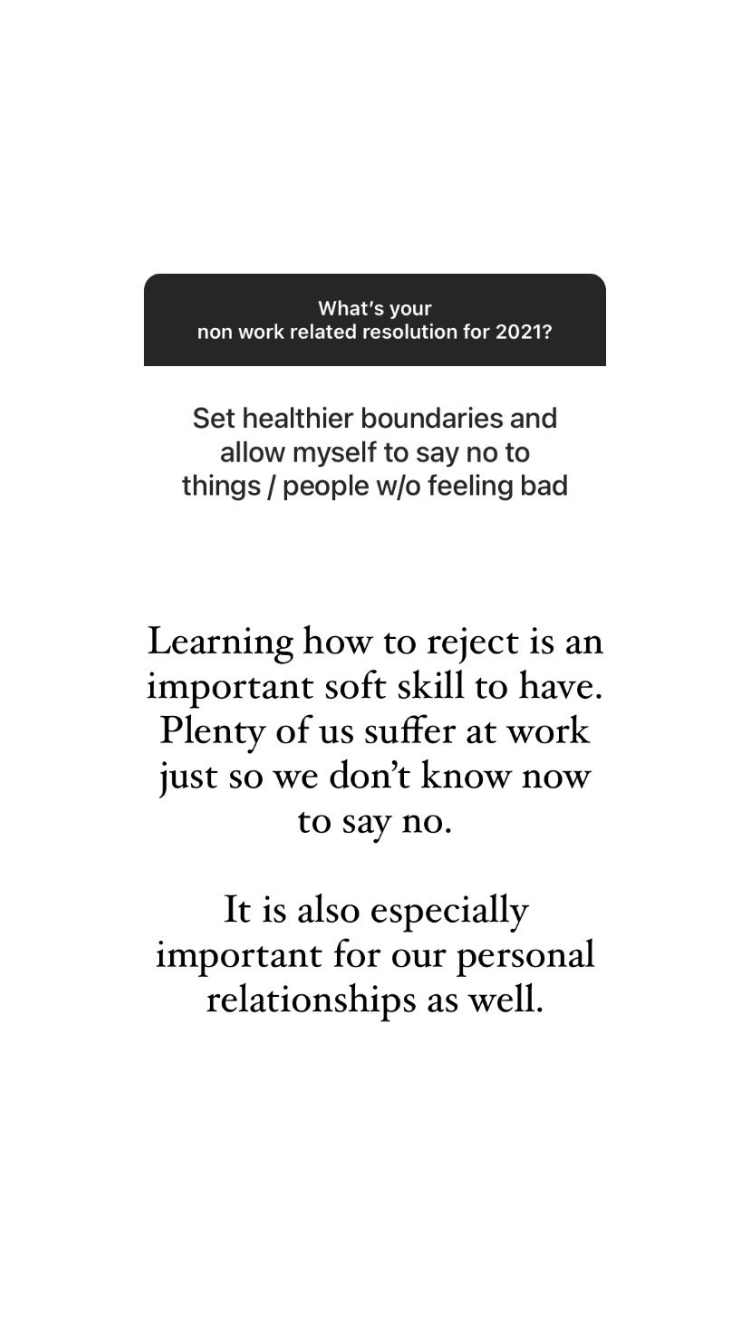
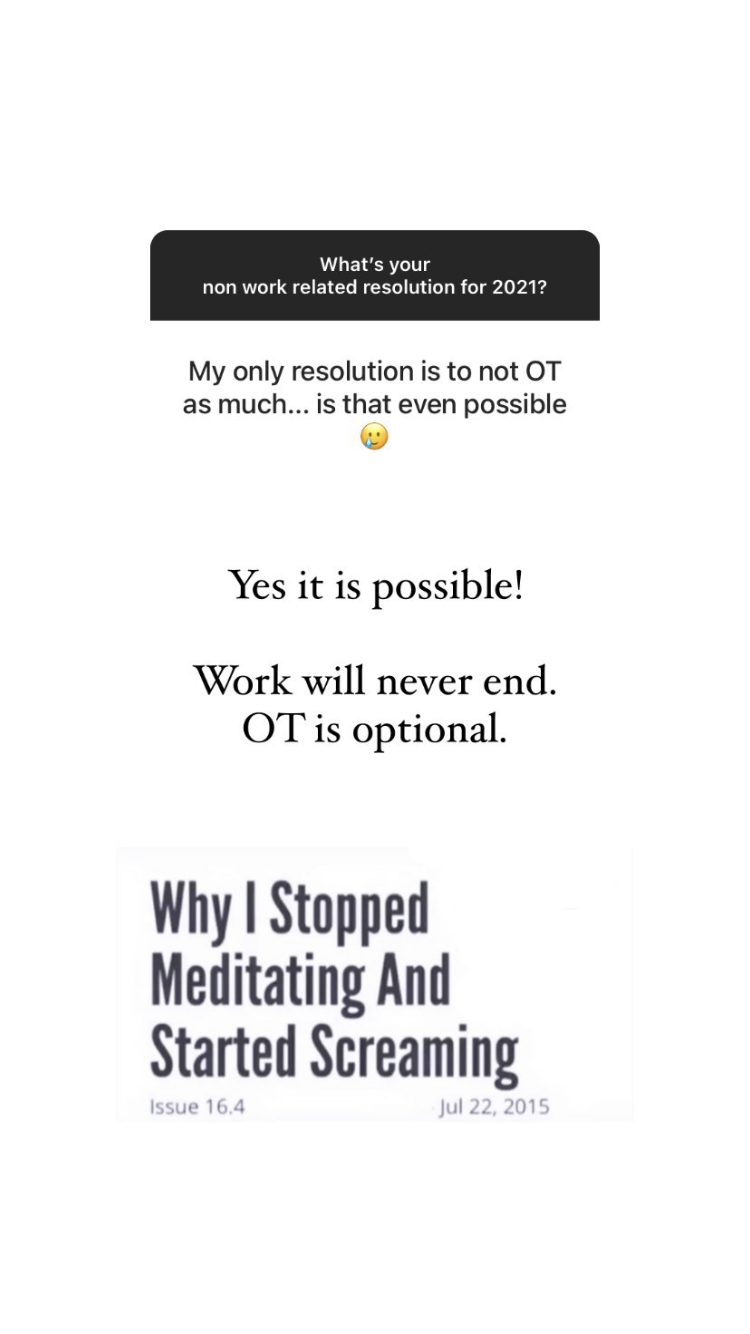
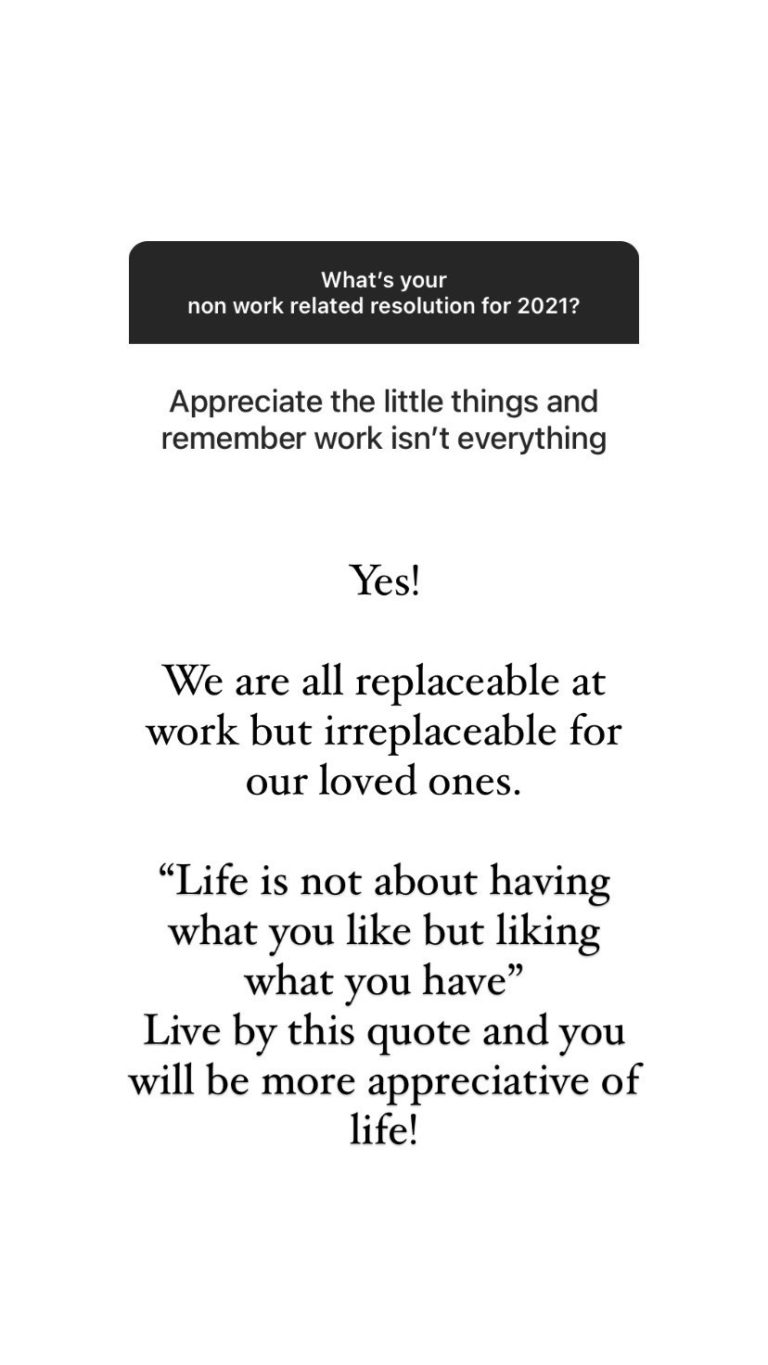
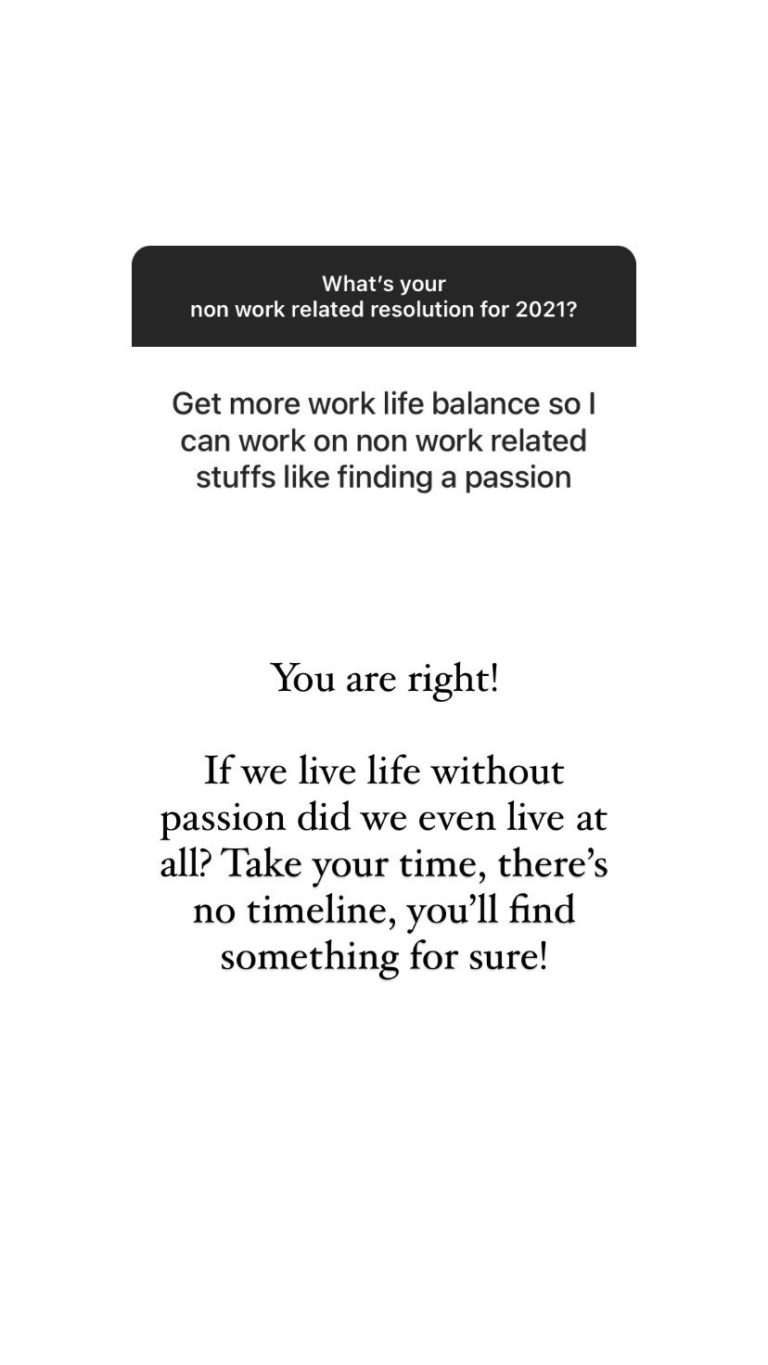
“Media never sleeps” is a phrase as overused as “The best place to hide a body is page 2 of the search results“, but it is true. People are always online, and where there is attention to be grabbed, we must be there to capitalise on it. There are truly times when the situation calls for such vigilance. High budget, tactical campaigns like 11.11, mega events? Sure. But to do this everyday? You’ll get used to it, but it’ll eventually burn you out too. Mental health is a real thing, and it pays to take care of it.
Work occupied my mind all the time. Whether I’m eating, reading the news, hanging out with my friends, I was always cautious about missing and email or a message. I was constantly worried about every little thing at work, and it slowly made me lose interest in the things around me.
It was when I woke up at 3am in literal cold sweat, worrying about a pathetic $500 campaign. I literally sat up for at least a good 10 minutes wondering what the actual f**k was going wrong. Always skipping breakfast, late lunches, late dinners, neglected friendships. All this just wasn’t worth it.
For those of you who might be struggling to find your pace, we thought we could share some things that we did. This is no replacement for expert advice. If you are struggling with your mental health, please seek professional help.
1. Commit To Something that You Like To Do
Engaging anything in your spare time now can feel like a guilt trip when you’re not working during your spare time. It’s not rocket science, but if you keep overclocking yourself, one day you won’t be able to even function properly.
Commit to doing something you like regularly. It could be watching Netflix, it could be reading, taking a walk, going to the gym, browsing the internet. Do it to disengage, and commit to it.
Creating a sense of self outside work:
Learning to do something you like again can be quite therapeutic. Not only that, but it helps you form an identity outside of work. You are defined by your personality, the things you like, the things that make you excited, and your job is just a means to that. Creating an identity beyond work helped me to draw that line between my work and my sense of self.
What did I commit to? Reading manga. I used to love reading manga when I was still in school. It might be a small thing to you, but I get excited over it. I get emotional over plot twists, intrigued about the lore, immersing myself in the visuals, the story and all the little things in between. I stopped doing it when I started work, but I remember how I used to be so look forward to each week’s release.
Going back to finish the stories I used to follow, discovering new developments for age old series (*cough One Piece), rekindling what little joy I had after work slowly reminded me that there were things beyond my job that mattered too.
Commit to doing something you like. Do what makes you happy. It doesn’t have to make sense to others, and you don’t have to pressure yourself to do it frequently. Just make sure you do it regularly.
If you let your identity be defined by your job and not by the things outside of it, you’re inevitably going to return to work to find it.
2. Give Space For Mental Health Through Personal Boundaries
“Actually, I got some free time now, might as well just do it first, then Monday got time for other things”.
Surprise! Free time is not time for work!
Productivity might be the name of the game, but work isn’t your entire life, and it shouldn’t be. Lunch time is meant for lunch. Dinner time is meant for dinner. Weekends? The clue’s in the name. Just because I am at home/working from home doesn’t mean that I should be working or attending to your requests when I am available. Employers and coworkers need to understand this. Your free time belongs to you, and it shouldn’t always go back to work.
One of the biggest hurdles to cross:
It’s not just your own mental barrier sometimes. It could be a toxic boss or that you feel you owe it to your team to be around.
To completely disengage right from the beginning was impossible, so I started small by ignoring my boss’ texts after work hours/weekends. Unless they were urgent requests, like adjusting the budget, I would choose not to entertain to minor adjustments or questions after work. Appear offline on skype/teams, even if you’re working on something. It’s difficult, but you can find someway to start and gain momentum on it.
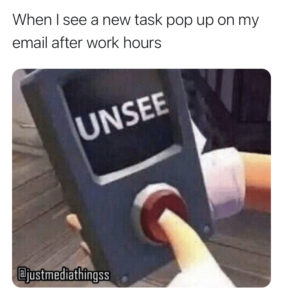
Most importantly, you need to remind yourself and be aware that you really don’t owe it to anyone to be there 100% of the time.
A healthy mind cannot be on overclock all the time, and only you can be responsible for that.
3. Exercise
At JMT, we’re huge advocates of exercise.
Panda goes to the gym every week religiously, but I prefer to take it easy, maybe a simple jog or some static exercises once a week. Just to sweat it out a little. The point is that you don’t have to do heavy exercises like a full HIIT session, or some 3km around your neighbourhood kind of run (though all these do count). It could be something as simple as an easy 10 min jog, a literal walk in the park, or just like me, simple static exercises – push ups, some core, and then ending it with planks.
Simply keeping your body active will really help your physical and mental health. Exercise keeps your mind more alert and your body more energised. Even if you don’t trust us, please trust the at least some of the science behind exercising.
4. Get Enough Sleep
There’s a saying in Chinese that roughly translates to “revenge all nighter”, which is to stay up late because you’ve not had time to do the things you want to do in the day. And what do you do? Scroll TikToks lmao.
There’s no fixed number of hours we could recommend but it sure as hell isn’t 4 hours. Wash your face, brush your teeth and just get ready to go to sleep. You could spend some time reading a book before that, but don’t hop onto social media.
Again, science does explain to us why we need to actually sleep for our bodies to recover. Getting enough sleep is probably a good starting point, if everything else fails. The industry never sleeps, but we all have to.
It's Always A Continuous Process
Managing your mental health is a continuous process of finding your pace. There will always be days where we have to bite the bullet with OT and going the extra mile for the client. But there must also be days where you can relax, unwind and take a chill pill.
Sometimes, mental health also goes beyond individual responsibility. Your support group, environment and many other factors play a part to helping you maintain your pace. If you find yourself in the deep end, please do not hesitate to seek professional help.
Working hard for your career is a good thing. If you can find a balance and a develop healthy love for it, by all means, go for it. But if you were looking for some small ways to get back on tangent, we hope that this has given you a little bit of insight as to how we learnt to manage ourselves and give time to managing JMT on the side even with our full time job.
